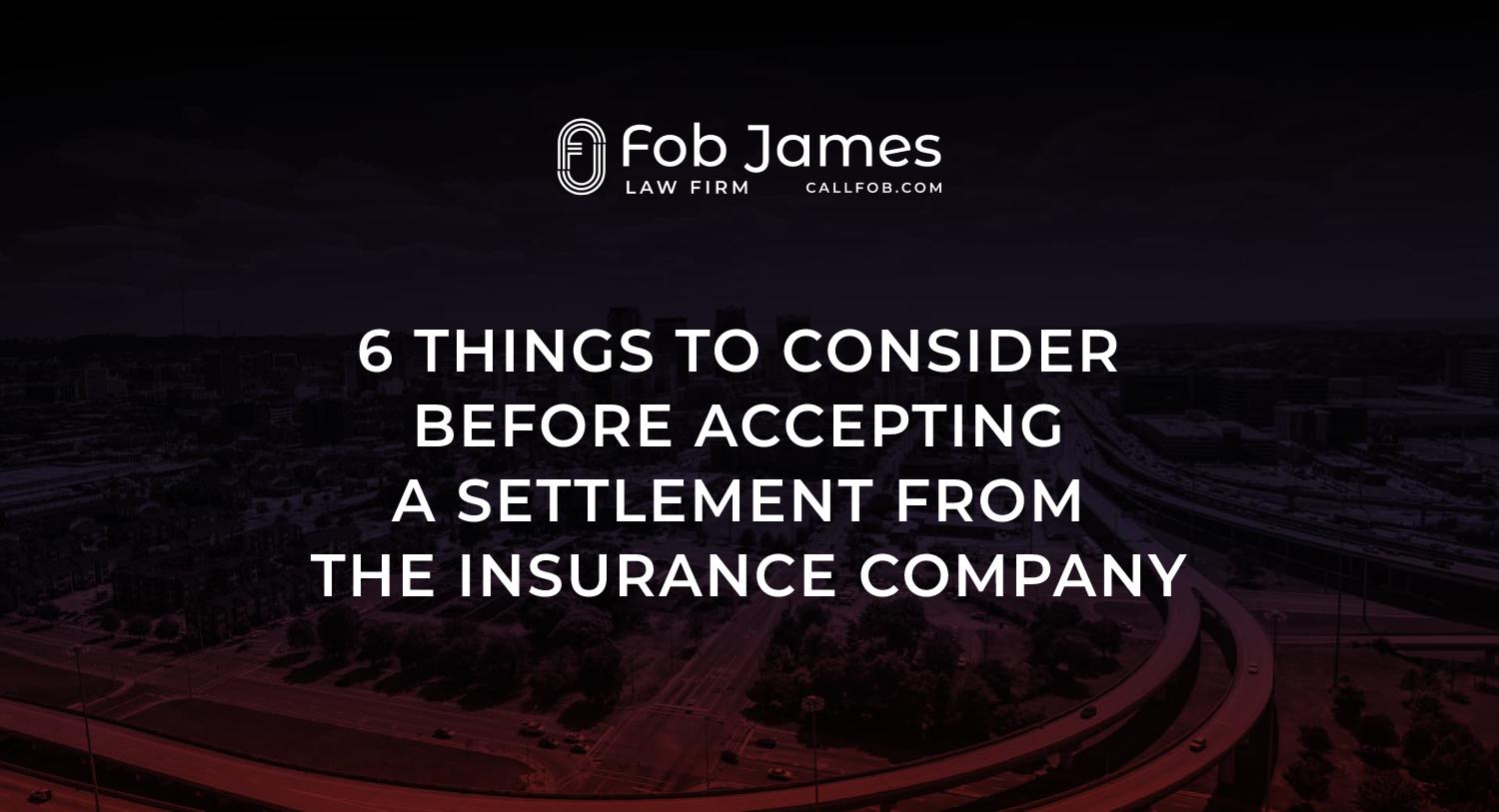
Insurance companies frequently offer money settlements to injured parties after accidents happen.
An initial insurance company settlement offer can represent all the costs from your injury, or it more often can mean a lowball offer.
Here are six things you should know about insurance company settlements and questions to ask before accepting a settlement.
1. How Do Insurance Settlements Work?
Insurance settlement offers are sent by an at-fault party’s insurance company to provide compensation to the injured party.
A settlement usually contains a lump sum of money or a structured payment plan covering medical bills, lost work time, and other costs.
Settlements have a caveat—once you accept an insurance settlement, you lose the right to gain any further compensation from the at-fault party.
Accordingly, you should think long and hard before you accept an offer.
2. What Is a Reasonable Settlement Offer?
Claims adjusters quickly pounce upon recent car accident victims with money settlement offers.
They may act friendly and pretend to be on your side.
But remember: Claims adjusters owe their loyalty to the at-fault party, and they also hate to lose their own cash.
You can’t fully understand the actual cost of your injuries until long after the accident happens.
For this reason, it’s rarely a good idea to accept a settlement offer that you get right after an accident.
A settlement offer should cover the majority, if not all, of your expenses to be reasonable, but this can vary depending on the circumstances.
An attorney can help you understand what a reasonable settlement offer is.
3. When to Accept a Settlement Offer
Generally, you should accept a settlement offer only after you have the help of an attorney and a period of negotiation.
It is also good practice to wait for all your injuries to heal as much as possible, so you get a complete picture of your damages.
In the end, you have the power to accept a settlement offer whenever you want, but getting an attorney’s advice and negotiating are two things you should do first.
4. What Happens If You Don’t Accept a Settlement?
If you don’t accept a settlement offer, you can still get compensation.
Sometimes insurance companies make it seem like their settlement offers are “all or nothing” deals.
However, this is rarely the case. You can make counteroffers to drive the settlement up. And if you can’t reach a fair agreement, you can take your claim to court.
5. How to Counter an Insurance Settlement Offer
You should counter an insurance offer by emphasizing how much money you will need to recover your damages.
As the injured party, a lot of power lies with you as to when to accept an offer.
However, it is highly advisable to hire an attorney to make counteroffers and conduct negotiations for you.
Attorneys understand all the tactics insurance companies use and often have years of experience negotiating with them.
6. Questions to Ask Before Accepting a Settlement
Here are some questions you should ask before accepting a settlement offer:
- Does it cover all your medical costs?
- Do you fully know how much your medical bills will be?
- Does the settlement take care of any lost earnings?
- Does the settlement include compensation for pain and suffering?
- Does the settlement cover property damage?
- Do you have the financial and emotional capability to go to trial?
Remember, you can always play hardball and never accept an offer, but this can mean you have to go to trial.
We’re Here to Help
If you suffer an accident and you have questions to ask an attorney about a settlement offer, don’t hesitate to reach out to Fob James Law Firm, LLC.
Our attorneys commit themselves to providing personalized care.
We have the resources of a large law firm, and we will bring them to bear to fight for every cent that you need to recover.
